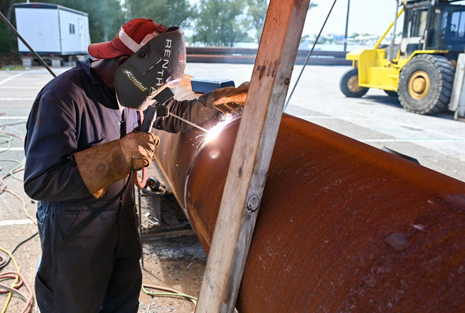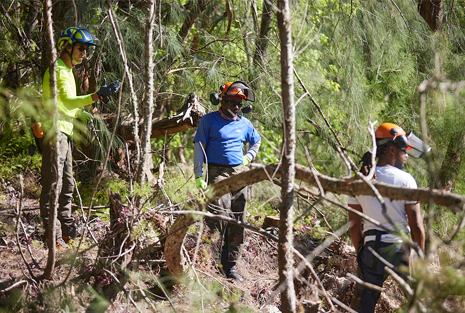to enhance the economic stability
and prosperity of a community
National Certification Roles
National certification programmes ensure that Bermuda’s vocational professionals are working to ‘national standards’ that introduce more proficient, competent, and safe-conscious professionals in specific occupations.
Certification is one of the primary responsibilities of the National Training Board (NTB), which seeks to improve the quality and efficiency of Bermuda’s workforce through training and re-training.
The programme of national certification was created by the National Occupational Certification Act 2004, whereby the Minister with the responsibility for labour is able to designate certain occupations to be compulsory.
The National Training Board (Designation of Occupations) Regulations 2008 required compulsory certification for three occupations – welders, electricians, and automotive service technicians (commonly referred to as automotive mechanics). Individuals in those trades were required to obtain certification by December 31, 2009.
In 2014, the trade of landscape gardener was added to the designated category for compulsory certification. Individuals in that trade are required to obtain certification by September 30, 2015. The NTB established Occupational Advisory Committees (OAC) for each of these designated occupations. Each OAC, which is comprised of up to six individuals appointed by the Minister, is tasked with setting the various standards for each occupation. These individuals must be industry experts directly involved in the occupation being standardised and evaluated, thus adding credibility to our workforce.

You do not have to wait until certification becomes compulsory in a particular occupation in order to become certified.
Contact a training officer at the Department of Workforce Development, and we will set up a certification programme in your chosen trade or profession – or we will direct you toward a programme that is already in operation. Many such programmes are held on-island.
We are committed to improving the livelihood and work opportunities of all our citizens and we want to continue to work towards a world-class, skills-based work environment.
In 2009 a six-step approach towards achieving national certification was implemented. In order, those steps are:
Applicants for certification must be 18 years or older.
Please note the following:
- Replacement of a lost identification card – $55.00
- Replacement of a certificate- $35.00
Non-Traditional Pathway to Certification
Adults learn in many different ways throughout their lives. Their social skills develop over years and their technical skills develop at work. Yet many people have no documentation or other means to verify their knowledge and skills.
Prior Learning Assessment Recognition (PLAR) is a process that helps adults to demonstrate and obtain recognition for learning that they acquire outside of formal education settings. PLAR focuses on what adults know and can do.
***All other criteria apply as set out above.


